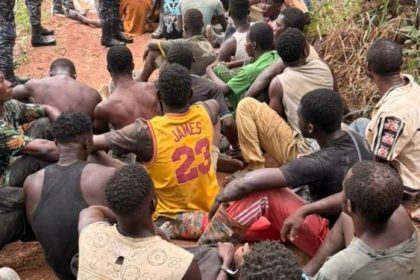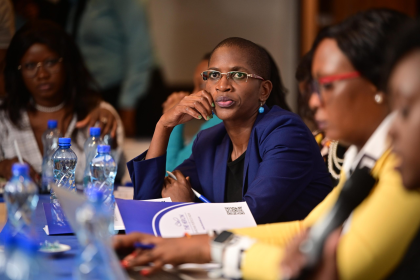The Russian trolls are back — and once again trying to poison the political atmosphere in the United States ahead of this year’s elections.
But this time they are better disguised and more targeted, harder to identify and track. And they have found an unlikely home, far from Russia itself.
In 2016, much of the trolling aimed at the US election operated from an office block in St. Petersburg, Russia. A months-long CNN investigation has discovered that, in this election cycle, at least part of the campaign has been outsourced — to trolls in the West African nations of Ghana and Nigeria.
They have focused almost exclusively on racial issues in the US, promoting black empowerment and often displaying anger towards white Americans. The goal, according to experts who follow Russian disinformation campaigns, is to inflame divisions among Americans and provoke social unrest.
The language and images used in the posts — on Twitter, Facebook and Instagram — are sometimes graphic.
One of the Ghanaian trolls — @africamustwake — linked to a story from a left-wing conspiracy website and commented on Facebook: “America’s descent into a fascist police state continues.”
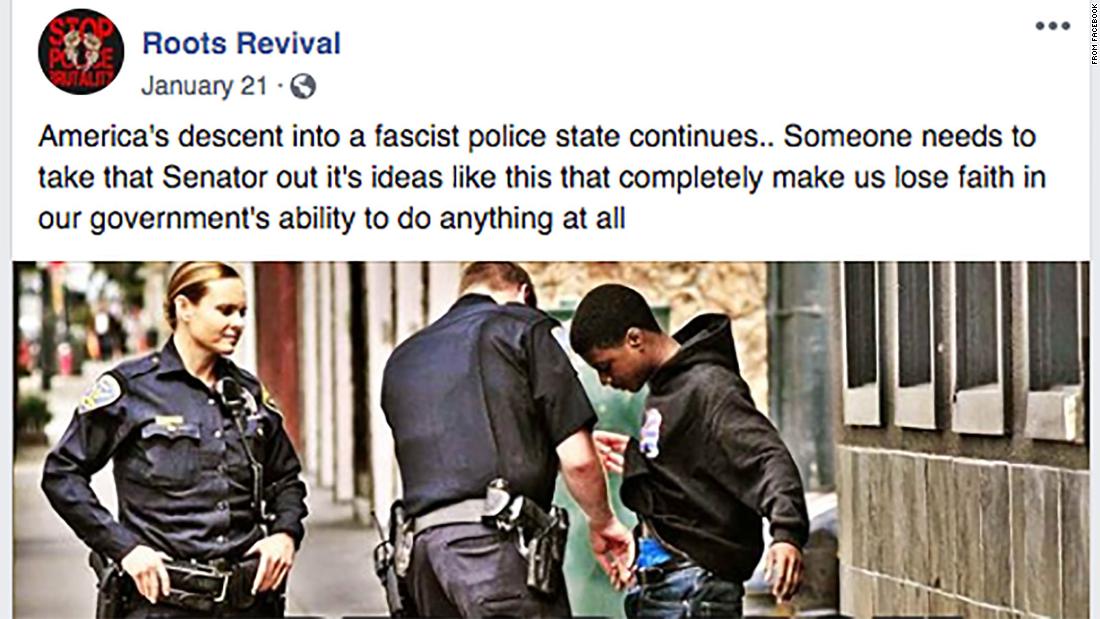
Referring to a Republican state senator, the post continued: “Someone needs to take that Senator out.
“On another occasion, @africamustwake tweeted: “YOU POLICE BEEN KILLING BLACKS SINCE YA RAGGEDY MOMMAS GAVE BIRTH TO U. HAPPY MLK DAY TO U HYPOCRITES.”
More than 200 accounts were created by the Ghanaian trolls — the vast majority in the second half of 2019 — and they reached hundreds of thousands, perhaps millions, of people worldwide.
Facebook and Twitter had already been looking into some of the troll accounts when CNN notified the two companies of our investigation.
In a statement Thursday, Facebook said that its “subsequent assessment benefited from our collaboration with a team of journalists at CNN” and it had “removed 49 Facebook accounts, 69 Pages and 85 Instagram accounts for engaging in foreign interference.”Facebook said: “This network was in early stages of audience building and was operated by local nationals — witting and unwitting — in Ghana and Nigeria on behalf of individuals in Russia.
It targeted primarily the United States.”Facebook says that about 13,200 Facebook accounts followed one or more of the Ghana accounts and around 263,200 people followed one or more of Instagram accounts, about 65% of whom were in the US.Twitter told CNN that it had removed 71 accounts that had 68,000 followers.
“Most were tweeting in English and presented themselves as based in the United States,” it said in a statement. “The accounts — operating out of Ghana and Nigeria and which we can reliably associate with Russia — attempted to sow discord by engaging in conversations about social issues, like race and civil rights.
“The activity uncovered by CNN had striking similarities to the Russian troll campaign of 2016, which created hundreds of accounts designed to pass as American. @africamustwake, for example, which described itself as a “Platform For #BLM #Racism #PoliceBrutality,” claimed to be in Florida.
Other accounts, for example, claimed to be in Brooklyn or New Orleans.
One of the accounts even pretended to be the cousin of an African American who died in police custody. The post was then shared to a Facebook group called Africans in the United States. The group told CNN it had no idea that trolls were trying to engage it.
Another also implied they were in the US, tweeting in February: “Just experienced blatant #racism in Downton (sic) Huntsville, Alabama … Three of my black male friends were turned away because they were ‘out of dress code.'”There was a concerted effort to agitate in the US.
One of the trolls — Black People Trendz — posted to the Facebook page of Black Lives Matter in Cincinnati. Another — @The_black_secret — was devoted to police shootings of African Americans. It also posted a video of a racial incident with the comment “Blacks have a right to defend themselves against Racism” that drew more than 5,000 reactions and more than 2,000 shares.
CNN worked with two Clemson University professors — Darren Linvill and Patrick Warren — in tracking the Ghanaian operation. Linvill said the campaign was straight out of the Russian playbook, trying to mask its efforts among groups in the US.”They were very closely engaged in the Black Lives Matter community,” he said.
“They talked almost exclusively about what was happening on the streets of the United States and not on the streets of Africa.”Kailee Scales, managing director of Black Lives Matter Global Network Foundation, said her organization was proactive when it came to protecting its voice online.
“We are walking into the 2020 election cycle with eyes wide open to the fact that international and domestic actors are striving to undermine our organizing, and we are not going to let that happen,” she told CNN.
Inside the troll farm
The operation’s headquarters were in a walled compound in a quiet residential district near the Ghanaian capital, Accra. It had been rented by a small nonprofit group that called itself Eliminating Barriers for the Liberation of Africa (EBLA).
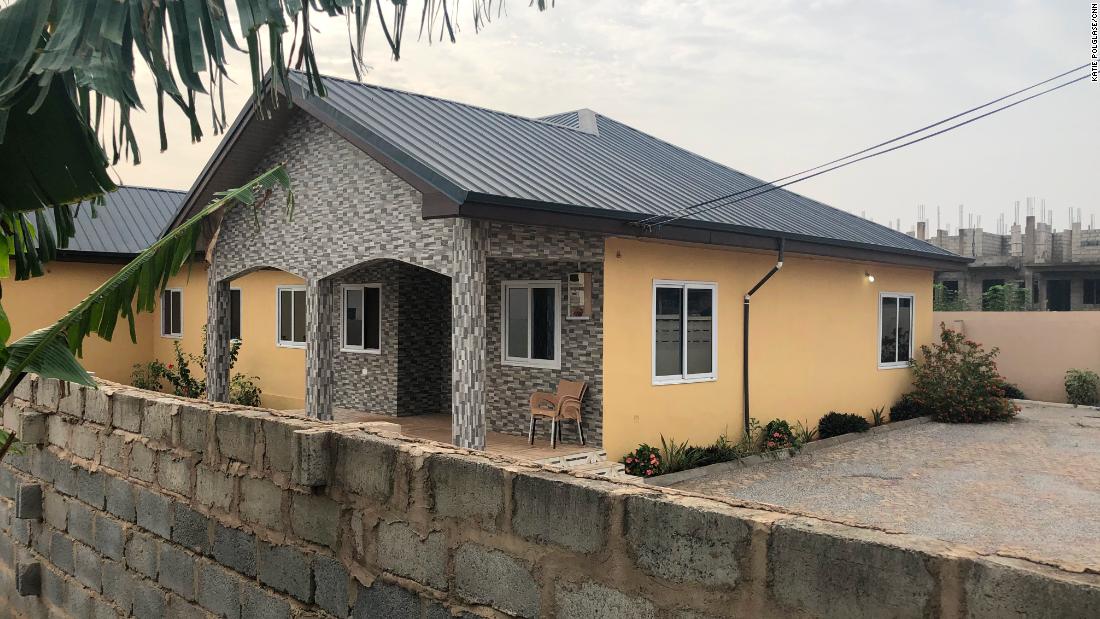
This building was used as the headquarters for Ghanaians posing as Americans and posting on social media. Sixteen Ghanaians, mostly in their 20s, worked at the compound; some lived rent-free in a nearby apartment. They were issued mobile phones, not laptops, and worked around a table.
The EBLA trolls communicated as a group through the encrypted Telegram app, which is rarely used in Ghana.
One of the trolls agreed to talk to CNN, so long as her identity was disguised. She said she had no idea she would be working as a Russian troll. She said that employees were given topics to post about. “So you get stories about LGBT, you get stories about police brutality, depends on what you are working,” she said.
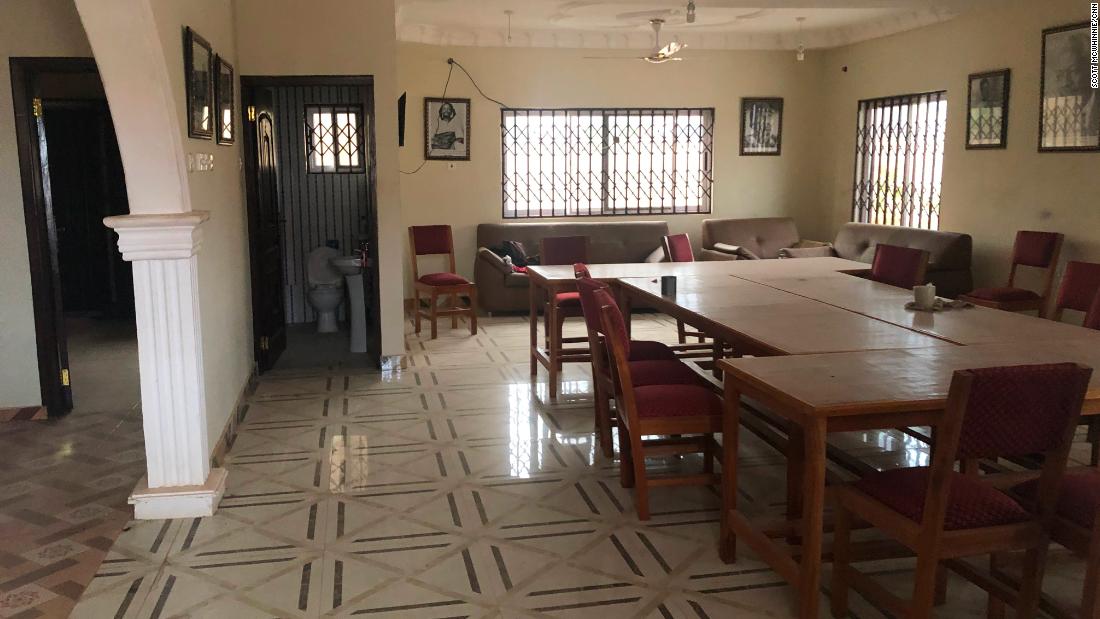
Employees would sit at this table to create posts and tweets on their phones, one worker told CNN. The employee said they were told that the best time to tweet and post was late afternoon and at night in Ghana, times when a US audience would have been active. They were given US articles to read.
Facebook said that although the people behind the campaign had attempted to conceal their purpose and coordination, its investigation had found links to both EBLA and “individuals associated with past activity by the Russian Internet Research Agency.
“The Internet Research Agency (IRA) was responsible for much of the foreign trolling activity aimed at the 2016 and 2018 US election campaigns, according to the US government. The IRA was funded by Russian oligarch Yevgeny Prigozhin, who is so close to the Kremlin that he is nicknamed “Putin’s chef.”


